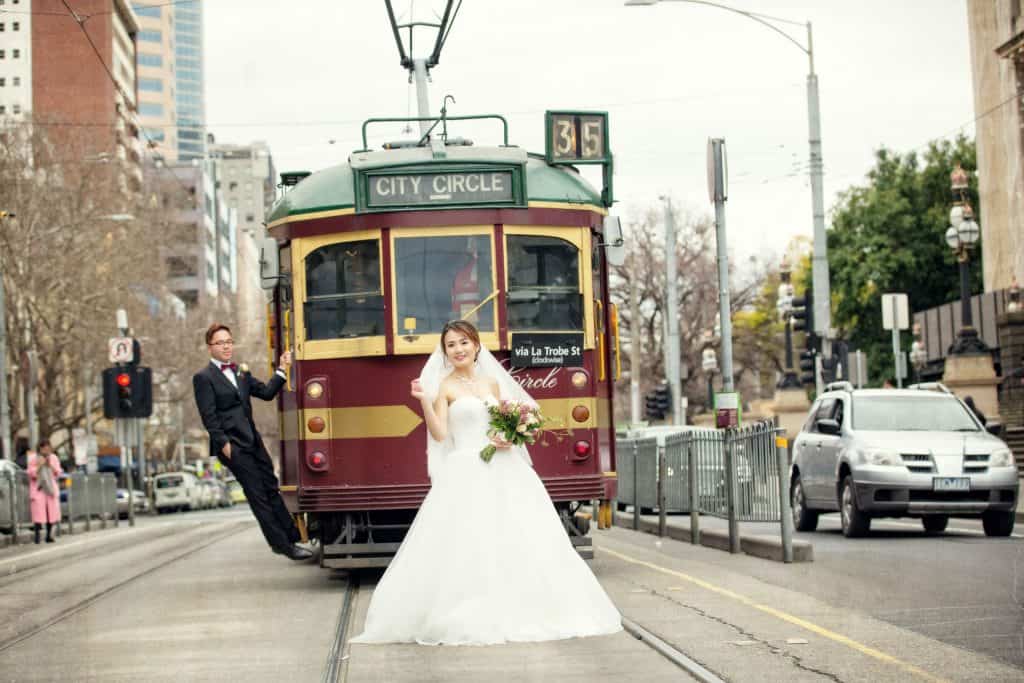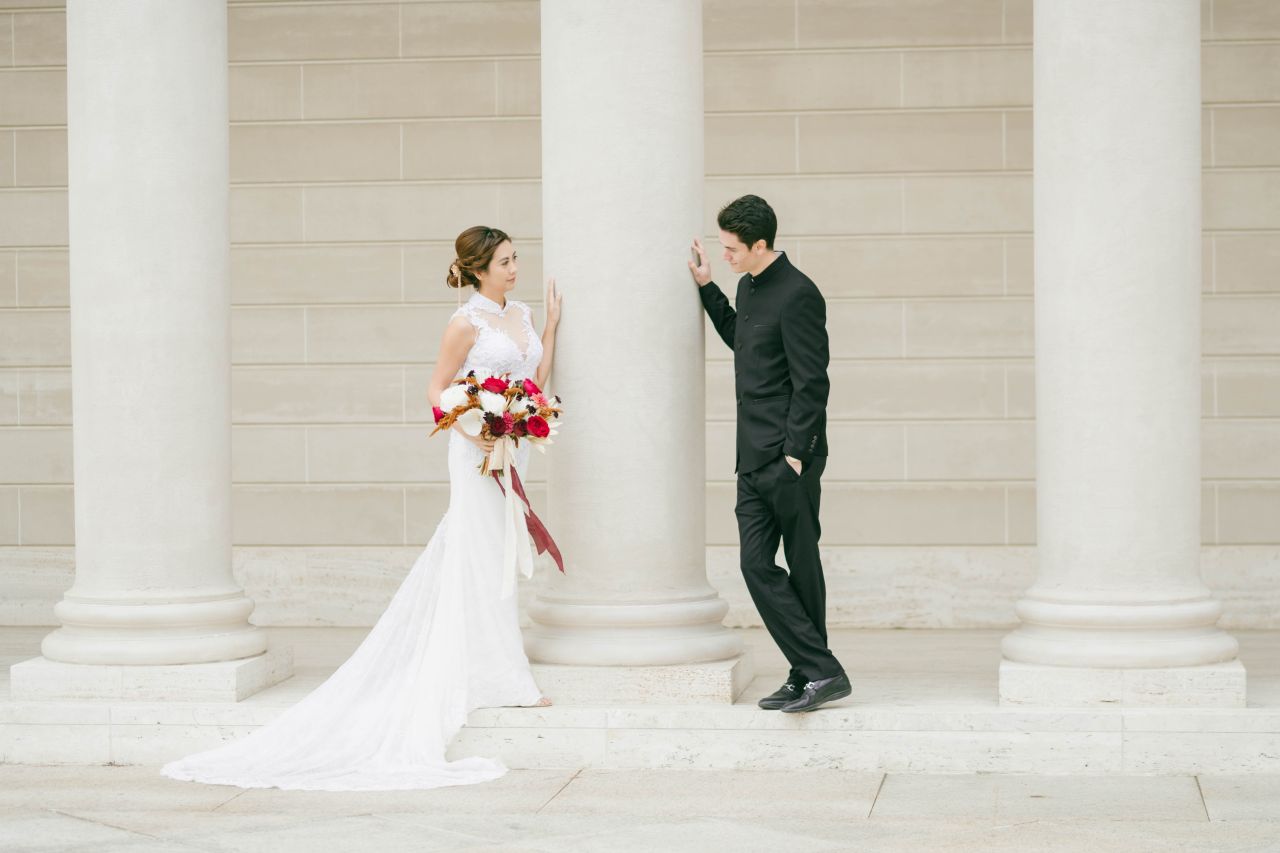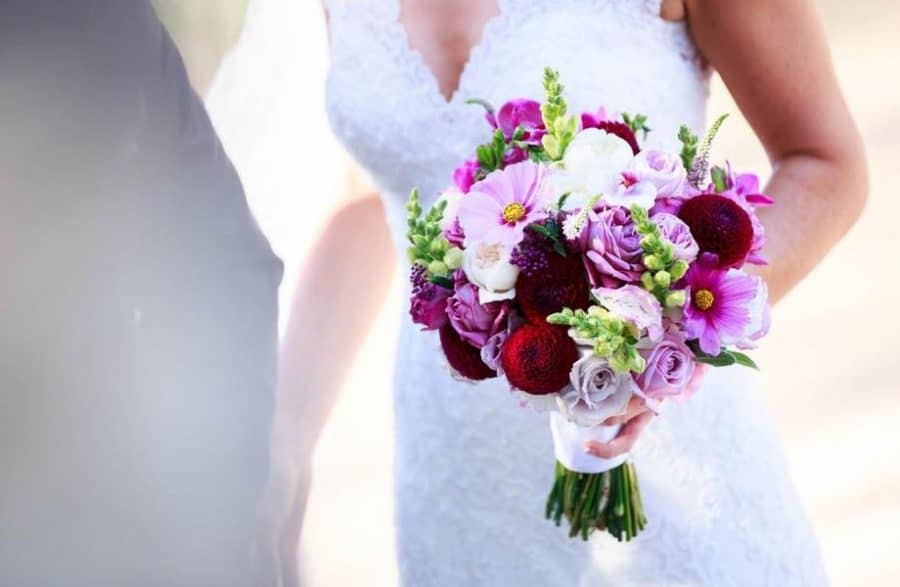Planning your wedding is an exciting journey, but it can also feel like a whirlwind of decisions, deadlines, and expectations. As someone who’s been through it, I know how overwhelming it can be. That’s why I’m sharing my top wedding planning tips, straight from the experts. Whether you’re considering hiring a wedding planner or tackling the details yourself, the right guidance can make all the difference. From creating a realistic timeline to managing your budget, this guide will help you navigate the process with confidence, ensuring your wedding day is everything you’ve dreamed of and more.
Why Hiring a Wedding Planner Can Make All the Difference
When I first started planning my wedding, I was overwhelmed with the endless details — from finding the perfect venue to ensuring every tiny detail was in place. I was caught in the excitement of it all, but soon realised that managing everything myself wasn’t as glamorous as it seemed. That’s when I decided to bring in a wedding planner. Looking back, it was one of the best decisions I made. If you’ve ever wondered whether a wedding planner is really worth it, let me share with you why they can be a game-changer for your wedding day.
The Benefits of Having a Wedding Planner on Your Team
A wedding planner isn’t just there to make your wedding look pretty; they’re the logistical ninjas who ensure everything goes smoothly. Think of them as your personal project manager, except their project is your dream day. I can tell you from personal experience that they take the pressure off, handling everything behind the scenes while you focus on the fun parts of planning, like choosing your dress or picking your honeymoon destination.
Some of the main benefits include:
- Organisation: A planner ensures that every detail is covered and keeps everything on track.
- Vendor Negotiation: They’ll help you get the best deals with trusted suppliers, potentially saving you money.
- Stress Reduction: Planners handle crises and logistics, leaving you to enjoy the fun parts of the day.
How a Planner Helps You Save Time, Money, and Stress
I’ve seen firsthand how hiring a planner can save you hours of work. They already have established relationships with trusted vendors, which means you won’t have to spend time vetting suppliers or second-guessing your choices. They know who’s reliable, who’s within your budget, and who will align with your vision.
Here’s how a planner can save you time, money, and stress:
- Time-Saving: They manage the research and vendor selection process, so you don’t have to start from scratch.
- Cost Efficiency: A planner knows where to splurge and where to save, ensuring you get value for money.
- Expertise: They foresee potential problems before they arise, preventing costly mistakes and headaches.
Additionally, a wedding planner can help you avoid costly mistakes. For example, I was planning on renting a venue that seemed perfect, but my planner pointed out a hidden cost in the fine print that would have blown my budget. Having that extra set of experienced eyes was invaluable. In fact, many planners have industry connections that allow them to secure better deals than what you could find on your own, which means your investment can stretch further than you think.
Lastly, the amount of stress a planner can alleviate is immeasurable. Weddings are supposed to be joyous, not stressful, yet so many couples end up frazzled on the big day because of last-minute hiccups. A planner handles all the little crises that may arise, leaving you free to relax and enjoy the day, knowing everything is under control.
Types of Wedding Planners and Coordinators: Which One Suits You?
When it comes to hiring a wedding planner, there isn’t a one-size-fits-all solution. Depending on your needs, budget, and level of involvement in the planning process, you can choose a planner or coordinator that fits your specific situation. From my own experience, understanding the difference between the various types of planners helped me make a decision that suited both my personality and my wedding vision.
Full-Service Wedding Planners: The Complete Wedding Package
A full-service wedding planner is the ultimate choice if you want someone to handle everything from start to finish. This was the option I chose for my wedding. A full-service planner will work with you to develop your vision, help you establish a realistic budget, manage contracts, and ensure all your vendors align with your theme and expectations. They are involved in every stage of the planning process, right through to the execution of the day.
The benefits of a full-service planner include:
- Complete Vision Management: They will work with you to conceptualise your dream wedding and make it a reality.
- Vendor Management: They handle everything from securing top-tier suppliers to negotiating prices.
- Stress-Free Day: On the wedding day, you won’t have to worry about anything; they’ll coordinate every detail to ensure things run smoothly.
This option is perfect for couples who either have limited time or prefer to delegate most of the work to someone they trust. It’s a bit of an investment, but for the peace of mind and expertise you get in return, it’s well worth it.
Month-of Planners: The Secret Weapon for Finalising Details
Not everyone needs a full-service planner. Some couples may already have most of their wedding planned, but need a helping hand in the final stages. This is where a month-of planner comes in. I’ve seen couples with a great foundation turn to a month-of planner, and it was the key to turning a potentially stressful final month into a smooth experience.
A month-of planner typically steps in a few weeks before the wedding to tie up loose ends. They’ll ensure that everything is confirmed, the vendors are on track, and a detailed timeline is created. This option is perfect for those who prefer to be hands-on throughout the planning but need an expert to execute their vision on the day.
Key advantages of a month-of planner:
- Last-Minute Assistance: They confirm all details with vendors and manage contracts in the final month.
- Timeline Creation: They’ll create a detailed wedding day timeline to ensure everything runs on time.
- Day-of Management: They will be there on the day to ensure everything goes smoothly and troubleshoot any issues.
Day-of Coordinators: Stress-Free Wedding Day Management
For couples who have planned everything but need someone to oversee the big day, a day-of coordinator is an excellent option. A day-of coordinator isn’t there to plan the wedding from scratch, but they ensure that everything goes off without a hitch on the actual day.
This was the choice I made for my own wedding. I had everything planned but needed someone to step in and ensure the day went smoothly. I couldn’t have been happier with the decision. The day-of coordinator took over the logistics, managed the vendors, and made sure my partner and I could enjoy the day without worrying about the details.
The key benefits of a day-of coordinator include:
- Wedding Day Oversight: They manage everything on the day, from coordinating with vendors to keeping everything on schedule.
- Troubleshooting: If any issues arise (and they always do), they’re the go-to person to handle them quickly and efficiently.
- Peace of Mind: You get to focus on enjoying your day while they take care of the heavy lifting behind the scenes.
For those who are comfortable planning their wedding but want peace of mind on the day, a day-of coordinator is a great choice.
Wedding Planning Checklist: Essential Steps You Can’t Miss
Planning a wedding can feel like navigating a maze of decisions, but a good checklist can make all the difference. I remember feeling completely lost at the start, not knowing where to begin. But once I started working through a checklist and timeline, everything started to fall into place. Having a wedding planning checklist is like having a map when you’re in the middle of a new city — it guides you and keeps you on track.
Setting Your Wedding Vision and Budget
The first step to successful wedding planning is to define what you really want. It’s easy to get caught up in what’s trendy or what others expect, but remember: this is your day, and it should reflect your style and preferences. My partner and I spent time early on discussing our vision — how we wanted the day to feel, what kind of atmosphere we wanted to create, and what traditions mattered to us.
Here’s how you can start:
- Define Your Wedding Vision: What is the overall vibe of your wedding? Is it rustic, modern, traditional, or something entirely unique? Discuss it with your partner so you’re on the same page.
- Set a Realistic Budget: Once you know what you want, set a budget. Allocate funds based on what’s most important to you — whether that’s the venue, food, or entertainment.
- Leave Room for Extras: Make sure your budget includes some flexibility for unexpected expenses, like last-minute decor or additional guests.
Creating a Wedding Timeline: Stay on Track with These Tips
Now that you have your vision and budget set, it’s time to create a wedding timeline. The earlier you start, the more time you’ll have to research, compare options, and make informed decisions. From booking the venue to securing vendors, you need to know when to do what.
- Draft a Comprehensive Timeline: Start with a basic outline of what needs to be done (venue booking, dress fitting, etc.) and break it into smaller, actionable tasks.
- Set Milestones: For example, aim to have your venue booked within the first three months and your dress purchased within six months. This gives you clear deadlines to work towards.
- Stick to the Plan: A wedding planning timeline keeps you organised and ensures nothing slips through the cracks.
How to Organise Your Wedding Guest List: Tips from Planners
The guest list is often one of the most challenging aspects of wedding planning. It can be overwhelming to decide who to invite, especially when balancing family expectations, work colleagues, and friends. I found this part of planning particularly difficult, but with a solid strategy and some advice from my wedding planner, it all fell into place.
Keeping Your Guest List Manageable and Within Budget
One of the first tips I received from my planner was to define my guest list early. It helped narrow down everything else — the venue size, catering, and even the overall vibe of the wedding. A smaller, more intimate gathering can lead to a more relaxed day, as well as reduce costs. Here’s what I did to make the process easier:
- Create an A and B List: The A-list includes those people you absolutely must invite, while the B-list consists of people you’d love to have but can live without. This helps if you need to make adjustments depending on the budget or venue space.
- Focus on Close Family and Friends: Weddings are personal, and while it’s tempting to invite everyone, keeping the guest list small can create a more intimate and meaningful event. I focused on inviting people who really mattered to us.
- Be Prepared to Make Tough Decisions: Not everyone can make the cut. Trust me, I had to make some hard decisions, but it’s important to stay within your budget and venue limits.
A manageable guest list is key to staying organised and keeping the planning process stress-free. It also ensures that the people you care about are present to celebrate your big day.
Maximising the Guest Experience: Adding Personal Touches
Once you’ve settled on your guest list, it’s time to think about the experience. Planners often talk about the importance of guest experience, and it’s something I didn’t fully grasp until I started planning my wedding. After all, it’s not just about the ceremony — it’s about creating memories for everyone who attends.
Consider these small touches to enhance your guests’ experience:
- Personalised Favours: I chose small gifts that reflected the couple’s personality, which not only made for great keepsakes but also added a personal touch.
- Interactive Experiences: A fun addition we included was a photo booth, which guests loved! Little things make a big difference in how your guests remember the day.
- Guest Comfort: Make sure your guests are comfortable. This includes everything from offering a coat check in colder months to having plenty of seating and water available throughout the day.
Guests will remember how they felt on your wedding day, so taking the time to create a welcoming and personal atmosphere goes a long way.
Common Wedding Planning Mistakes to Avoid
I wish someone had told me all the common mistakes that couples make during the planning process. There were a few hiccups along the way, but with the help of a professional planner, I avoided some of the more serious pitfalls. Here’s what I learned from my experience — and some key mistakes to avoid during your wedding planning.
Overlooking the Importance of Wedding Day Coordination
It’s easy to think that once you’ve made all the big decisions, everything will fall into place on the day. But this is one of the biggest mistakes I made. I assumed I could handle it all, only to realise that the day itself requires constant attention to detail. That’s where having a day-of coordinator can be invaluable. A coordinator ensures that the timeline is followed, vendors are on track, and any issues that come up are dealt with swiftly.
I highly recommend hiring a day-of coordinator, even if you’ve planned everything yourself. They ensure the event flows smoothly and let you and your loved ones focus on enjoying the celebration.
Failing to Plan for the Unexpected
No matter how much you plan, things don’t always go as expected. It’s important to have contingency plans in place, just in case. I was fortunate that the weather on my wedding day was perfect, but I saw several weddings where weather or other unforeseen issues caused last-minute stress.
Some ways to plan for the unexpected include:
- Backup Weather Plans: If you’re having an outdoor ceremony or reception, always have an indoor option ready, especially in unpredictable climates like Melbourne.
- Emergency Kit: A wedding emergency kit can be a lifesaver. Think of things like sewing kits, extra makeup, and snacks for the bridal party. You’ll be surprised how often these come in handy!
- Clear Communication: Make sure your vendors know about any backup plans, whether it’s a change in timing or location. Good communication ensures that everything runs smoothly, even when unexpected challenges arise.
Wedding Planning on a Budget: How to Have a Beautiful Wedding Without Breaking the Bank
Let’s face it — weddings can get expensive. But they don’t have to be. One of the best pieces of advice I received from my planner was how to have a stunning wedding without spending a fortune. It’s all about smart choices, prioritising what matters most, and making compromises where needed.
Budgeting Tips to Maximise Your Wedding Dollars
The first step is to set a budget and stick to it. You’ll find that certain areas of the wedding can be more flexible than others. I learned quickly that you can cut costs in some areas without sacrificing quality. For instance, instead of spending a huge chunk of my budget on floral arrangements, I chose simple but elegant blooms that were more affordable but still beautiful.
Some tips to keep your wedding budget-friendly:
- Prioritise Your Must-Haves: Focus on the aspects of the wedding that are most important to you. For us, great food and a killer photographer were essential, so we allocated more funds there.
- Negotiate with Vendors: Don’t be afraid to ask for discounts or packages. I managed to get a better deal on my catering by booking during the off-season.
- DIY Elements: Consider making your own wedding invitations, favours, or even decor. I found some amazing DIY wedding decor ideas that saved us a lot of money while still giving the wedding a personal touch.
DIY Wedding Planning Tips: Crafting Your Dream Wedding Yourself
If you’re planning your wedding on a budget, you might want to take on some DIY tasks. Some aspects of wedding planning, like making your own invitations or creating centrepieces, can save you a significant amount of money. But remember, it’s important to choose DIY projects that won’t overwhelm you.
Here are some DIY ideas to help you save:
- Handmade Invitations: I opted for custom-designed wedding invitations using a template online, which was much cheaper than hiring a designer.
- Centrepieces: I made my own centrepieces using flowers from a local market and rustic vases I bought from a thrift store.
- Favours: Instead of buying pre-made favours, I crafted small, personalised gifts for guests, which added a heartfelt touch without a hefty price tag.
Enjoy the Process and Make Your Wedding Unique
Weddings are a huge milestone, and while they require a lot of planning, it’s important to remember that the focus should always be on what truly matters — your love story and the commitment you’re making to each other. It’s easy to get caught up in the endless to-do lists, but the most memorable moments of your wedding will come from the heart, not the budget.
Why You Should Trust Your Instincts and Enjoy the Journey
I’ll be honest, during my planning process, there were times when I felt pressure to make everything perfect. Everyone has an opinion — from your parents to your best friend to a dozen Pinterest boards. But what I quickly realised was that when I trusted my instincts and stayed true to what my partner and I wanted, everything just fell into place.
Here’s why trusting your instincts is so important:
- It’s Your Day: At the end of the day, it’s about you and your partner. Forget about meeting everyone else’s expectations and focus on creating the day you’ve always dreamed of.
- Enjoy the Process: Wedding planning is a once-in-a-lifetime experience. While it can be stressful at times, try to take a step back and enjoy the little moments, like tasting cake or picking out a first dance song.
- Make it Personal: Don’t feel bound by traditions or trends. Add your own personal touches, whether it’s a unique wedding theme or a quirky tradition that’s meaningful to you both. The day will feel more authentic, and that’s what makes it truly special.
Expert Advice for Stress-Free Wedding Planning
I won’t sugar-coat it — wedding planning can be overwhelming. But with the right approach, it doesn’t have to be stressful. Here’s some advice to help you keep your sanity during the process:
- Delegate: Don’t try to do it all on your own. Ask friends and family to pitch in. For example, I had my bridesmaids help with decor, and my uncle offered to play live music during cocktail hour. It was great to have their support, and it allowed me to take a breath.
- Focus on What Matters: When you get bogged down by the details, remember why you’re doing this. It’s not about the perfect seating arrangement or the designer cake — it’s about celebrating your love and commitment.
- Stick to Your Budget: One of the most important pieces of advice I can give you is to stay within your means. It’s easy to get caught up in the glamour of the wedding industry, but at the end of the day, what you spend doesn’t determine the quality of your celebration.
The best part of the wedding planning process is knowing that it’s all leading to the most important day of your life. Stay grounded, stay organised, and don’t forget to take the time to enjoy the ride.
Let’s Get Straight to the Point
Wedding planning doesn’t have to be stressful. By hiring the right planner, sticking to a timeline, and prioritising what truly matters, you can create a smooth, enjoyable experience leading up to your big day. Whether you choose a full-service planner, a month-of coordinator, or a day-of planner, each plays a vital role in ensuring that everything runs seamlessly. Budgeting wisely, keeping your guest list manageable, and adding personal touches to your wedding will make the day memorable for you and your loved ones. Stay organised, trust your instincts, and most importantly, enjoy the process!





